SUMMARY
This is AI generated summarization, which may have errors. For context, always refer to the full article.
![[OPINION] The many lies about Philippine fact-checkers](https://www.rappler.com/tachyon/2022/04/lies-about-fact-checkers-april-1-2022.jpg)
In 37 days, Filipinos will be trooping to the polls to vote for their next leaders in elections that many consider as existential.
The process of discernment is not always easy, and it’s much more complex now because apart from assessing the candidates’ qualifications and platforms, voters also need to check if the information they’re using to make decisions are factual or dubious.
This is why Rappler has collaborated with newsrooms, civil society groups, schools, and church groups in #FactsFirstPH, which is a multi-layered, multi-sectoral collaboration that aims to fight disinformation online. Efforts include debunking dubious claims online, amplifying fact checks, and translating fact checks and educational content into multiple local languages and formats, research on disinformation narratives and actors, and steps to hold online perpetrators accountable through legal action. To date, over 120 organizations have already agreed to participate in this collaborative endeavor.
Other Philippine media organizations are involved in fact-checking. Vera Files, like Rappler, is a verified signatory of the code of principles of the International Fact-checking Network (IFCN). There is also Tsek.PH, another collaborative fact-checking effort initiated by the University of the Philippines. Vera Files and Rappler are also working with Internews on an incubation program meant to help other local organizations meet the IFCN verification requirements.
Yet, as we pursue these initiatives, the principle and practice of fact checking in the Philippines is now under relentless attack from those who thrive on lies. Rappler and other media organizations involved in combating disinformation have been attacked on social media, with some members of the FactsFirstPH coalition subjected to DDoS attacks since December last year.
As we celebrate the International Fact Checking Day on Saturday, April 2, allow me to correct some of the brazen lies that have been told about fact-checkers in the Philippines.
Claim: Fact-checkers are self-proclaimed, not accountable
While fact-checking is what ordinary citizens should be able to do, it takes a lot of effort before an organization gets to become a verified signatory of the code of principles of the IFCN. To begin with, the organization needs to have a track record for consistently producing fact-checks. It needs to be able to demonstrate the soundness of its fact-check methodology.
Various disclosures are also required to prove that the organization is complying with the code of principles. Among the requirements is a transparent correction process, which Rappler has practiced since 2012.
When an application is submitted, a third party verifier reviews these submissions to make sure that the organization is indeed complying with IFCN standards. This is a process that fact check organizations go through every year. Facebook (whose company name has since been changed to Meta) only engages with organizations which are verified IFCN signatories.
Claim: Facebook’s fact-checkers are responsible for taking down posts, pages
This claim has been peddled by social media influencers who claim that Vera Files and Rappler, the fact-check partners of Facebook in the Philippines, have taken down either posts or entire pages.
This is not true. Fact-checkers produce fact-check stories and rate content on Facebook’s fact-check tool. When a piece of content is rated, it typically gets a warning label in order to alert users. Then the post’s circulation gets reduced. Facebook said it reduces the circulation of pages and websites which get repeatedly rated for posting false or altered content.
It is Facebook that takes down content, pages, and accounts – when they have been proven to violate Community Guidelines. Read more about Facebook’s policies here. For example, in September 2020, Facebook took down two separate networks of pages for violating their policy against coordinated inauthentic behavior. Rappler’s data-driven investigation on the network involved in red-tagging and spreading dubious claims against activists contributed to this takedown, but why begrudge us for exposing harmful behavior?
Claim: Rappler has not been transparent about how it conducts fact checking.
Publicus Analyst Malou Tiquia made this claim on Twitter. This is false.
Each of the fact checks produced by Rappler were properly sourced and written in a way that they can be independently verified by third parties. Rappler’s fact check methodology is disclosed on its website. So, too, are its editorial standards and guidelines which include a corrections policy.
On top of this, Rappler, through its civic engagement arm MovePH, has been conducting onground workshops on the fact check methodology since 2018. After the COVID-19 pandemic hit the country in March 2020, these activities shifted online. We have since conducted over 50 webinars which catered to over 14,000 participants and counting.
We fail to see what else we can do in order to meet Ms. Tiquia’s requirements for transparency – unless she is just against everything that Rappler does.
Claim: Rappler has a habit of failing to disclose the identity of its fact checkers
This is a lie, unless Antonio Contreras, the person who made this claim in a recent column in the Manila Times, makes it a habit not to read articles in full. Or, like Ms Tiquia, he is just against everything that Rappler does.
Anybody who has been reading our fact checks, including Contreras himself, should be able to see the taglines of researchers which are visible in all of our fact checks. These indicate the name of the fact checkers who drafted the fact check.
Fact checks are typically a team effort as they go through rigorous review processes to ensure accuracy. The organization itself stands by each fact check rating it publishes. This is why the bylines of our fact checks are usually just indicated as Rappler.
Members of the editorial team who contribute to the fact check program are listed in a page which lists frequently asked questions about our fact check project.
Claim: Fact checkers have made a habit of ‘relying on biased or dubious sources’
In a recent column where he ranted about our fact check on the Marcos estate tax, Contreras claimed that Rappler’s fact checkers have made a habit of “ relying on biased or dubious sources.”
This is not only false, it borders on malice.
Apart from the fact that the source is former Supreme Court justice Antonio Carpio, the specific fact check that Contreras was ranting about included a link to G.R. No. 120880, the Supreme Court resolution on the Marcos estate taxes which became final and executory in March 1999. It also links to other stories with embedded documents related to the estate taxes.
On March 30, in fact, no less than Finance Secretary Sonny Dominguez confirmed that indeed the Marcoses have not heeded a final court order.
Claim: ‘Foreign-funded’ Rappler, Vera Files and other media groups have been trying to bring down the Duterte government, and are campaigning for Robredo
Manila Times columnist/conspiracy theory peddler/Rappler hater Rigoberto Tiglao loves peddling this narrative; he’s been weaving this “foreign-funded” tale since Duterte became president.
This is false and malicious. Anybody who has been following Rappler’s fact checks and investigations on disinformation, or attended its numerous webinars, would know that Rappler has a program combating disinformation for years now.
Tiglao then exaggerates the impact of this funding on Rappler’s financials. Referring to amounts supposedly allocated to Rappler, the Philippine Center for Investigative Journalism (PCIJ), the Center for Media Freedom and Responsibility (CMFR), Vera Files, and Mindanews, Tiglao claimed that “…amounts are huge for thinly staffed websites with little overhead and none of the huge paper costs that are print media’s biggest expense.”
Take note that this is coming from somebody who previously claimed that cookies on websites are expensive.
Tiglao’s insinuations betray his lack of knowledge of the costs of running a fully digital news organization such as Rappler, which happens to belong to the top five news sites in the country. Our costs in fact further escalated due to recent heightened cyberattacks on our site.
It is worth emphasizing that the Constitution does not prohibit news groups from receiving funding from international grant institutions that promote universal advocacies such as human rights, press freedom, good governance, and sustainable development, among others. Having said that, NED is not the only funding source of Rappler’s program to combat disinformation, which is a global fight. Funders include Facebook’s Third Party Fact Check Program, Meedan, and the Google News Initiative, among others.
Far from being hidden as Tiglao implied, the source of the funding for the fact-check program has been publicly disclosed on Rappler’s website and on the website of NED. Disclosure of this partnership is made to ensure the public that they can always raise concerns about such partnership – if merited – and that the organizations involved are fully transparent about it. NED’s partnership with media organizations is imbued with the core principle of respect for editorial independence. Tiglao should know this; he co-founded PCIJ, which sought foreign grants and produced many groundbreaking stories that exposed corruption in all branches of government.
The problem is Tiglao’s lazy approach to research, which he compensates for with conjecture and innuendo. Rappler’s financial statements are submitted annually. He can even compare those with the submissions of the newspaper he writes for – assuming, of course, that the Manila Times dutifully files such corporate requirements with government agencies. Rappler’s fact check methodology and editorial standards can also be found just by doing a Google search on “Rappler fact check methodology” and “Rappler editorial standards.” The NED grants can also be found just by using the search terms “Rappler” and “NED.”
But it should be obvious by now that the objective of Tiquia, Contreras, Tiglao, and other social media influencers attacking fact-checkers is not to shed light. Their goal is to sow intrigue and attack fact-checkers in a sustained and relentless manner.
So who benefits from their lies and innuendos? – Rappler.com
Add a comment
How does this make you feel?



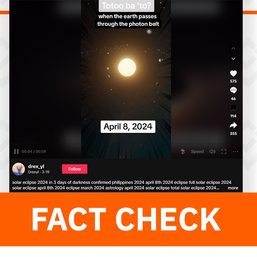

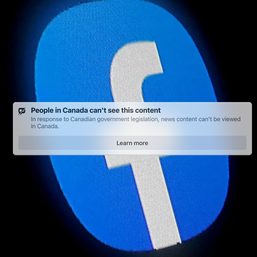
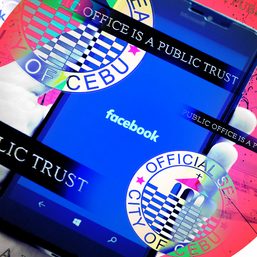
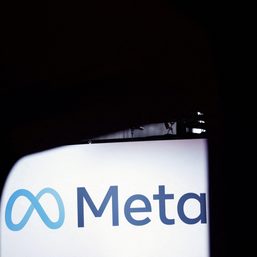
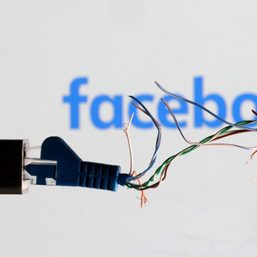
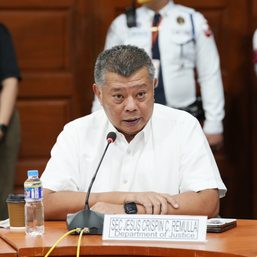
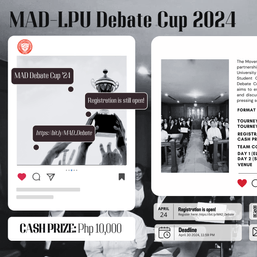

There are no comments yet. Add your comment to start the conversation.